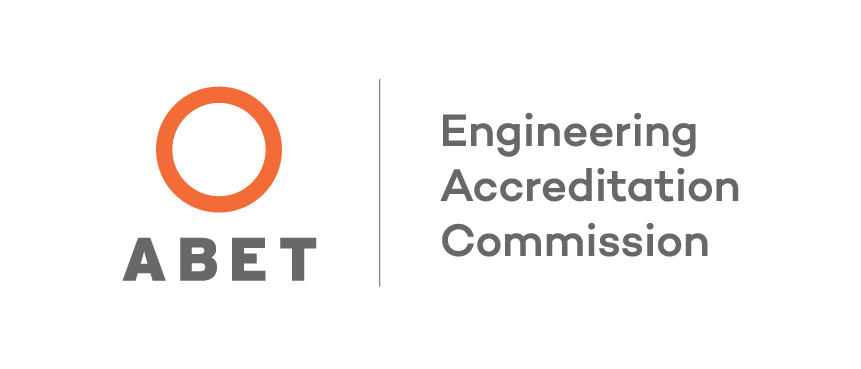Civil Engineering
BS, BS/MS
Major in civil engineering
Civil engineering is the engineering of the constructed facilities we encounter every day:
- buildings, bridges, tunnels, and dams
- waterways, railways, and highways
- water power, irrigation, drainage, and water supply
- wastewater and hazardous waste disposal
- environmental health systems
As a civil engineering major, you'll learn how to plan, design, construct, and manage public and private infrastructure and facilities. You'll also be prepared to address emerging engineering issues related to sustainability, climate change, and new energy resources. You will be prepared to pursue a career in industry, government, research, or academia. Frequent interaction with the public is unique to the field of civil engineering.
The bachelor's degree program in civil engineering also offers a concentration in environmental resources engineering. Engineers in this field apply civil engineering principles and processes to solve problems relating to air pollution, water pollution, solid waste and hazardous waste management, renewable energy, and water resources engineering.
As a civil engineering major, you'll apply engineering, mathematics, and science skills to analyze and interpret data and to design and conduct experiments. Our world-class faculty recognize that both civil and environmental aspects of the curriculum are integral to the training of engineers who can address the complex problems of today and tomorrow.
The curriculum focuses on:
- Computing: access to software and hardware used by civil engineers for computer-aided design
- Communications: effective communications skills to help you work successfully with multidisciplinary teams
- Career preparation: design your program of study to pursue a career in environmental engineering, geotechnical and soil mechanics engineering, structural engineering, transportation engineering, or hydrology and water resources engineering
For the bachelor's degree in civil engineering, you'll complete 68 credits in general and civil engineering with a total of 122 credits overall.
Core courses
- Intro to environmental engineering
- Fluid mechanics
- Soil mechanics
- Structural analysis
- Transportation engineering
Elective courses
Elective courses include advanced hydrology, geoenvironmental engineering, hazardous waste management, intelligent transportation systems, pavement design and management, structure materials, wastewater treatment, and water treatment.
Capstone course
All senior engineering majors participate in a capstone project where you will work as a team on a civil engineering project assigned by a practicing professional. The capstone course helps students gain a key understanding of all stages of the engineering design process and prepares them to become practicing engineers upon earning their bachelor’s degree.
As part of the capstone course experience:
- students work closely with a professional engineer from outside the university.
- professional sponsors lead students through a real-life engineering design project.
- the Senior Design experience begins in the fall with the selection of project managers and team formation.
- over the course of the academic year, students prepare four milestones that lead them through preliminary data collection, an alternatives analysis, a 50% design, and a final design.
- students also prepare a written report and oral presentation for each of these milestones.
Course descriptions, schedules and requirements
Starting salary for civil engineering majors, class of 2022: $79,461 - $82,000
NACE AY 2022 Data Collection of Undergraduate Alumni
The U.S. Bureau of Labor Statistics projects job growth at 11% for civil engineering. Massachusetts is ranked as "one of the best states" for its strong economy.
UMassD advantages
- Capstone projects: senior engineering students work in small teams on real-world, industry-specific challenges that demand analysis, proposals, prototypes, and solutions.
- Community: participate in annual competitions; join student organizations such as the American Society of Civil Engineers, National Society of Professional Engineers, the Society of Women Engineers, the National Society of Black Engineers, and Engineers Without Borders.
- Experience: participate in co-op and internship programs with construction firms and government agencies—often while also earning money for college.
- New initiatives: collaborate, create, and explore the Center for Scientific Computing and Visualization Research.
- The Civil Engineering program is also offered as a minor.
International (F-1) students who receive science, technology, engineering, and mathematics (STEM) degrees may be eligible to apply for a 24-month extension of their post-completion optional practical training (OPT). To learn about the eligibility criteria and detailed steps to apply, please review the International Student & Scholar Center (ISSC) OPT page and USCIS resources. F-1 students must consult with the ISSC to apply for STEM OPT.
UMass Dartmouth offers a great transfer experience for students who:
- have graduated from an accredited community college, or
- have earned college credits from an accredited college or university
Expand your opportunities
- Accelerated BS/MS Program: This fast-track program enables qualified BS degree students to complete both the BS and the MS in civil engineering.
- MS in Civil and Environmental Engineering: Further your education and career potential by earning a master's degree.
/prod01/production-cdn-pxl/media/umassdartmouth/programs/engineering-hero-190307-louis-christian-dmf-004-3.jpg)
/prod01/production-cdn-pxl/media/umassdartmouth/features/2023/230403-03-JOHN-LUCAS-GUIMARAES-01-850X480-1-850X480.jpg)
/prod01/production-cdn-pxl/media/umassdartmouth/programs/featurebox-honors.jpg?text=fallback320)
/prod01/production-cdn-pxl/media/umassdartmouth/programs/featurebox-study-abroad.jpg?text=fallback320)
/prod01/production-cdn-pxl/media/umassdartmouth/programs/featurebox-OUR.jpg?text=fallback320)
/prod01/production-cdn-pxl/media/umassdartmouth/programs/featurebox-university-studies.jpg?text=fallback320)
/prod01/production-cdn-pxl/media/umassdartmouth/profiles/smast/20160830-daniel-macdonald-dac-002.jpg?text=fallback320)
/prod01/production-cdn-pxl/media/umassdartmouth/profiles/engineering/jonathan-mellor-4441a.jpg?text=fallback320)
/prod01/production-cdn-pxl/media/umassdartmouth/profiles/engineering/Tootkaboni,Mazdak_0006_DVD180.jpg?text=fallback320)
/prod01/production-cdn-pxl/media/umassdartmouth/profiles/engineering/civil-engineering/231012-NEFELI-BOMPOTI-02-crop.jpg?text=fallback320)
/prod01/production-cdn-pxl/media/umassdartmouth/profiles/engineering/BEEMER-06a.jpg?text=fallback320)
/prod01/production-cdn-pxl/media/umassdartmouth/college-of-engineering/cen-dept/sengupta.jpg?text=fallback320)
/prod01/production-cdn-pxl/media/umassdartmouth/college-of-engineering/cen-dept/mogawer.jpg?text=fallback320)

